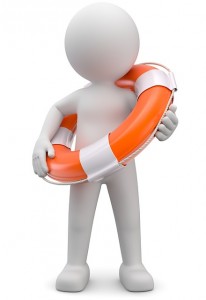Now first, let’s make something clear. There is a massive difference between problematic gambling and gambling for fun. Just like with alcohol, cigarettes or sex for example (or in fact – most things that we, adults, find pleasurable in life, hey!), some people can enjoy those responsibly without it having anything but positive effects on their life (alright, alright I can’t really claim cigarettes have a positive effect…maybe in shamanism…But you get the point) and the one of their loved ones. Others however, seem to not know when to stop and often what started as fun and games ends up ruining lives. So it is very important for oneself to be able to make the difference. It is a popular belief as well that there are people who simply have an addictive personality. Those categories should avoid gambling altogether. But it is not always so easy to spot the problem. So let’s quickly look at how can we diagnose compulsive gambling.

Even though it is not clear on what leads people into it, it is pretty evident the following signs should be flashing red lights. If you can recognise yourself or someone you know displaying those, you need to be asking for some professional help asap.
- Trying to hide when gambling/betting/playing
- Gambling getting in the way of family/work relationships
- Increase of spending/Money struggles
- Stealing, asking for loans
- Detached relationships with loved ones
Once that has been determined, the next step is to seek assistance. If it is yourself we are talking about, be sure that it is ok to ask for help. There are a number of organisations in the UK that are well established and professional, with everything in place to handle any situation that’s spun out of control. Know that however bad it all seems now, this is your first step to improving and resolving it and soon in time you will be looking back and feeling proud for overcoming that issue. It is also worth reminding yourself that you are by far not the only one – in the UK alone there are nearly 600,000 problem gamblers. The NHS has a good resource with options and institutions you can turn to for help.
If it is not yourself but someone you know – a member of your family, friend or colleague, the best thing to do is voice your concern. If you want someone to be honest with you, be honest with them. Don’t be afraid to point to facts, share your views, your own experience and that of other people around. It is often the case that people with addictions lie not just to others but to themselves as well (if not first), so pointing to the issue might be the first step for them to admit there is one. And that is a good start. Don’t blame yourself and don’t overdo it with responsibilities – unless you are a professional in the field, you cannot solve the problem. You can only support whoever is going through it, whilst they fight the addiction.
As a conclusion – if you have spotted an issue or have any doubts – for yourself or others – don’t delay action. Often catching a problem at the outset is all that matters to a positive outcome. There are hundreds of ways to get help, especially now with online communication – you can do so without even leaving your house or/and having to disclose your identity. Use them wisely.
